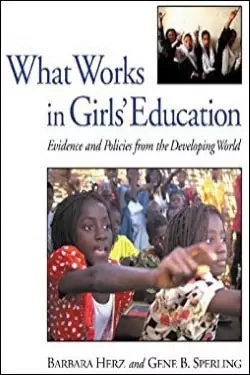
What Works in Girls' Education
Evidence and Policies from the Developing World

- Report
Overview
Investing in girls’ education globally delivers huge returns for economic growth, political participation, women’s health, smaller and more sustainable families, and disease prevention, concludes a new report from the Council’s Center for Universal Education by Senior Fellow Gene Sperling, former national economic adviser in the Clinton administration, and Barbara Herz, who brings more than twenty years of expertise at the U.S. Agency for International Development, U.S. Treasury, and the World Bank.
To effectively support and expand programs that increase girls’ educational opportunities, countries need to develop comprehensive national education strategies and ensure that heads of state and ministers prioritize education, which in turn can mobilize sufficient resources to get the job done. The report summarizes the extensive body of research on the state of girls' education in the developing world today; the impact of educating girls on families, economies, and nations; and the most promising approaches to increasing girls' enrollment and educational quality. The overall conclusions are straightforward: educating girls pays off substantially. While challenges still remain, existing research provides us guidance on how to make significant progress.
More on:
Download a summary of this report [PDF].
More on:
 Online Store
Online Store
